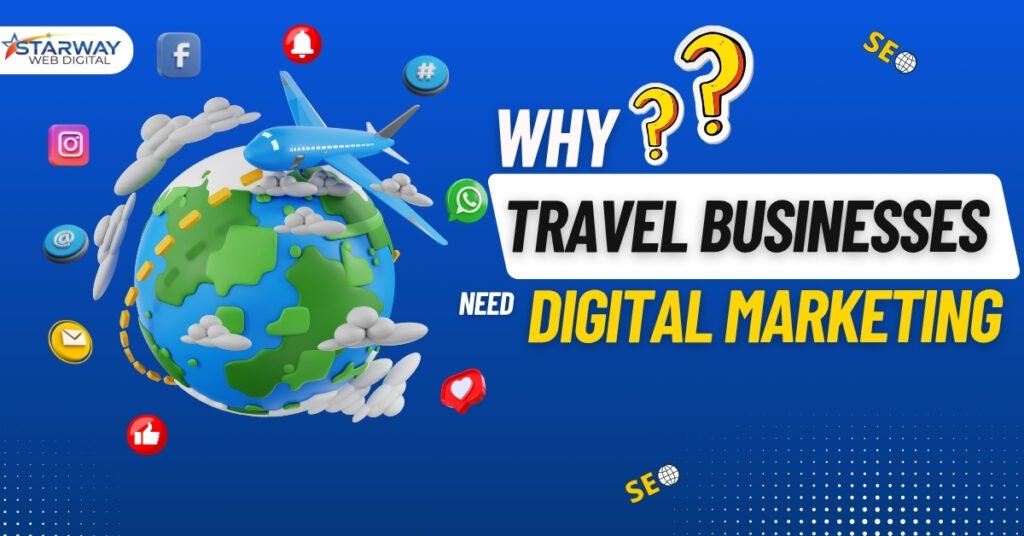Why Travel Businesses Need Digital Marketing in 2025
In 2025, digital marketing for travel businesses isn’t just a buzzword—it’s the core of how customers find you, trust you, and ultimately book with you. With more travelers planning their trips entirely online, ignoring digital marketing is like hiding your business in the middle of nowhere and expecting tourists to find it by chance. The game has changed. And if you’re still relying on old-school methods like flyers or walk-ins, you’re going to lose out to competitors who are visible, engaging, and converting online. 1. The Modern Traveler Starts Online When someone decides they want to go on a trip—whether it’s a weekend getaway or a luxury safari—the first thing they do is search online. They Google things like: If your business isn’t showing up in these searches, you’re missing out on hot leads ready to spend. That’s where SEO (Search Engine Optimization) comes in. By optimizing your site and content for keywords travelers actually search, you increase your visibility on Google—and that means more traffic, leads, and bookings. 2. Social Media Isn’t Just for Pretty Pictures Social media has become the digital storefront for many travel businesses. Platforms like Instagram, Facebook, TikTok, and Pinterest play a huge role in travel inspiration—and booking decisions. But just posting scenic shots won’t cut it anymore. With the right social media strategy, you can: Remember: travelers scroll before they book. Be where they scroll. 3. PPC Ads Drive Immediate Bookings While SEO is a long-term game, PPC (Pay-Per-Click) advertising gets you in front of potential customers instantly. Imagine someone searches “guided city tours in Rome” and your ad pops up at the top—boom, instant visibility. You only pay when someone clicks, and you can target by: A smart PPC strategy brings fast results—especially when promoting seasonal deals, new packages, or niche experiences. 4. Your Website Is Your Sales Rep Your website should do more than just exist—it should convert. A professionally designed, SEO-optimized website acts like a 24/7 salesperson. It builds credibility, answers questions, and encourages action. If your site looks outdated or isn’t optimized for conversions, even the best traffic won’t help. You’ll be leaking leads instead of gaining them. 5. Digital Marketing Levels the Playing Field Not a big-name tour operator? Perfect. Digital marketing gives small and mid-sized travel businesses a fighting chance against OTAs and major travel platforms. With smart targeting, good content, and a consistent online presence, even a small operator can outperform big competitors in local or niche markets. You don’t need the biggest budget—you need the right strategy. Final Thoughts: Evolve or Get Left Behind The tourism industry is fiercely competitive, and 2025 won’t wait for you to catch up. Whether it’s SEO to improve search visibility, social media to engage travelers, or PPC to bring in hot leads, digital marketing is what fuels sustainable growth. If you’re ready to stop missing out on bookings and start showing up where it counts—it’s time to invest in digital marketing.
Why Travel Businesses Need Digital Marketing in 2025 Read More »


